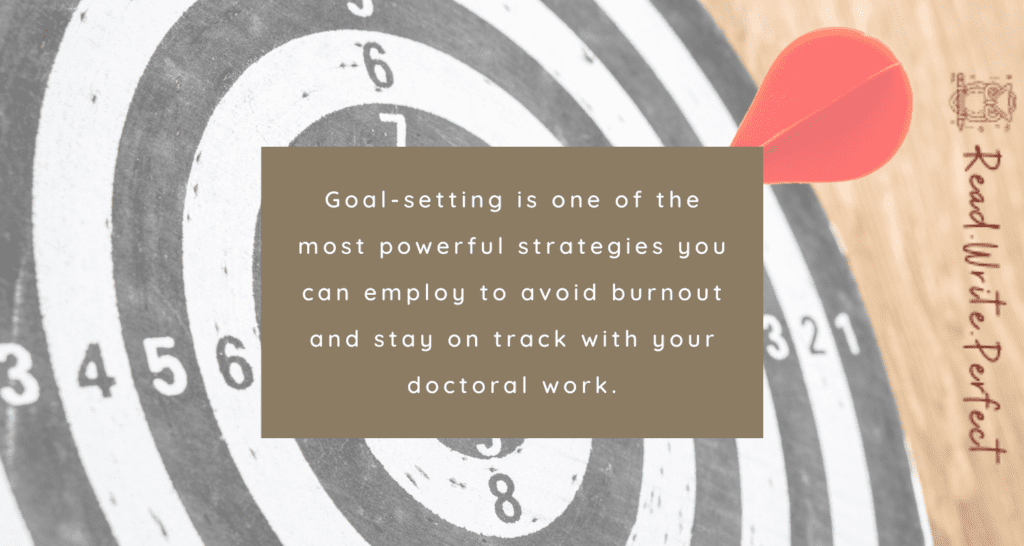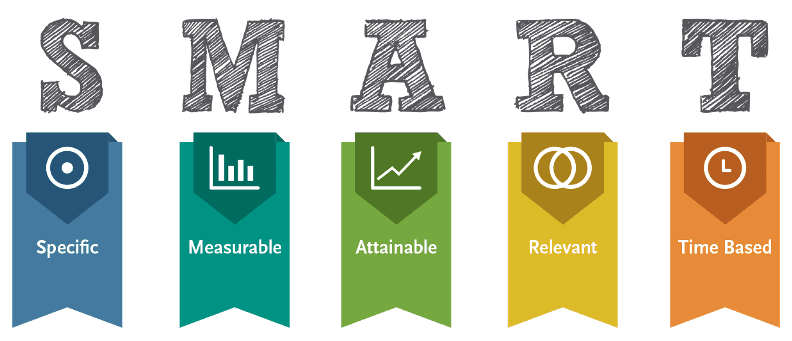
Read on for a quick explanation of how goals help, how to write goals, and what to do if you don’t manage to achieve your goals as expected.

The truth is, goal-setting is one of the most powerful strategies you can employ to avoid burnout and stay on track with your doctoral work.
Goal setting at its most basic works to keep you on track. By breaking the huge task of researching and writing a dissertation down into smaller, more manageable goals, you can better manage your time and the progress you are making.
Setting goals (and then achieving them) also gives you a sense of accomplishment and helps you celebrate the little victories that will eventually add up to a successful submission and completion. That feeling of accomplishment is invaluable when it comes to your energy and motivation to keep going.
Finally, goal setting will help you transition from degree to career. Goals help you define your path – they help you work out where you are headed, determine when you’ve arrived, and reassess whether or not you are happy there. In other words, having career-specific goals will enable you to ask “how is the school work I am doing helping me with my career goals?”



One way to do this is to use the SMART method – a well-established technique that provides a clear blue-print for goals.


A SMART goal meets the following criteria:
What’s smart about this? These criteria help you set goals that are clear, enabling you to focus your time, effort, and resources effectively.
Here’s a quick example: Today I will read and annotate five articles for the “theory” section of my literature review that is due in 3 weeks.



They first thing to remember when it happens to you is – don’t panic. Goals are a guidelines and support, but they are not set in stone. If you fail to meet one, simply rework it and try again.
First, assess – what went wrong? Was the goal too big? Did you not give yourself enough time? Do you need to reassess the rest of your goals or your timeline?
Then, use the SMART guidelines to re-set your goal (and/or goals and/or timeline) to be more achievable this time round, based on your current circumstances.



While you may be tempted to think self-care is not a high priority, setting goals that take care of your mental health and physical well-being will pay dissertation dividends in the long run.
When setting dissertation goals, therefore, make sure you account for your personal life and give yourself time away from your schoolwork. For example, you might want to set goals for taking enough breaks during your work day, spending enough time with family and friends, or drinking enough water.
Need some help identifying and setting goals for your dissertation? Coaching might be the right path for you – find out more by signing up for a free consultation.

